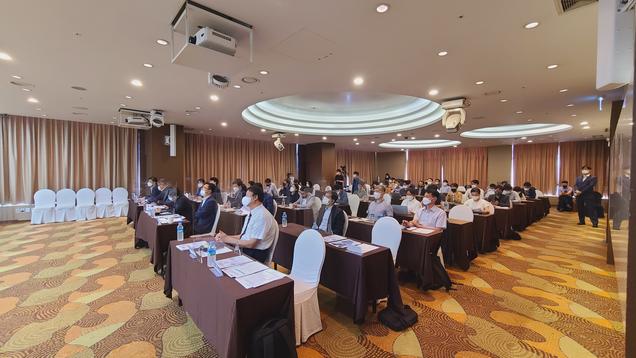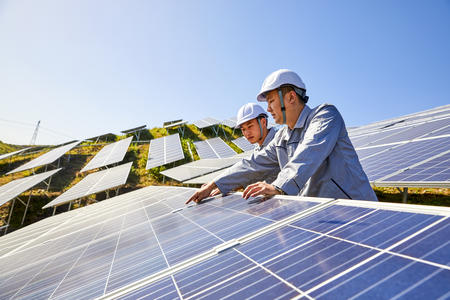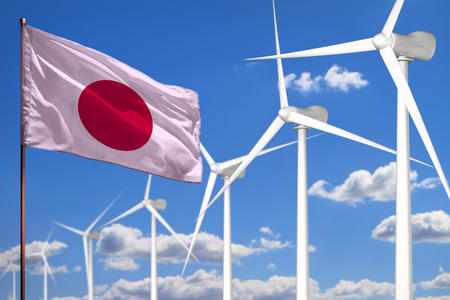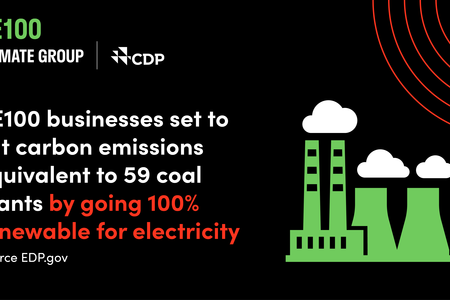We work with local partners in South Korea to raise awareness of Korean companies’ renewables ambition but also the barriers faced by global RE100 member companies and the solutions they want to see. Like in Japan where RE100 is considered the ‘gold standard’ in corporate sustainability, RE100 is becoming a key indicator for corporate competitiveness in South Korea and has helped create the political space for the market shift we discuss in this blog.
Last October, South Korea joined top economies around the world in committing to net-zero emissions by the middle of the century. Months before, the government’s Green New Deal laid the groundwork for this momentous pivot. It signalled the important role business would be playing, particularly with incoming ‘RE100 policies.’ These policies to enable companies to buy renewables and meet their RE100 targets are now being implemented. Available procurement options include a Green Premium, a type of green tariff offered by KEPCO (the state-run electric utility), renewable energy certificates, self-generation, equity investments, and third-party corporate Power Purchase Agreements (PPAs) for companies using more than 1MWh of electricity. Also, what would have been unheard of even a year ago, South Korea’s National Assembly passed a bill this Spring to allow direct PPAs, meaning that come this October, companies will be able to contract directly with renewable energy generators.
Given that over half of South Korea’s electricity demand comes from the industrial sector, which in 2020 consumed 289TWh (close to what powers all of Mexico,) these market developments are encouraging, and South Korea’s zealous adoption of RE100 very welcome. The government also launched a K-RE100 programme this year to support more Korean SME electricity consumers to voluntarily purchase renewables and there’s been a constant RE100 buzz in local media.
But market design has a direct impact on how cost-competitive a market can be, and significant blockers have emerged that run counter to promoting the voluntary use of renewables in Korea. Some of the most concerning issues that may restrict the expansion and uptake of renewable electricity by businesses are:
-
No level playing field for renewable electricity
Companies want to use renewable electricity that accurately reflects the comprehensive costs and benefits to the system and society, but renewable electricity is prevented from competing fairly with fossil fuel-based electricity in Korea. Corporate renewable PPAs have high environmental charges and sleeving fees (the transmission and distribution network charges). Issues with transparency also come into play because KEPCO isn’t accustomed to sharing their cost information so it is difficult to understand how these charges will be set. -
Global companies excluded from participating in sourcing schemes
Over 50 global RE100 companies have a footprint in Korea, but sourcing options (aside from the Green Premium and renewable energy certificates) are currently only open to companies that are direct customers of KEPCO. This effectively excludes many global companies whose Korean subsidiaries typically operate from leased offices, often without a contractual relationship with KEPCO. Until regulations change, it will be very challenging for them to meaningfully invest in and switch to using renewable electricity. -
Companies mandated to purchase total electricity generation produced by renewable power generators
This provision significantly reduces the paths to market for renewable suppliers and makes it more difficult for companies to access renewables through PPAs. Developing large-scale projects to supply to only one buyer will be extremely difficult and will eliminate economies of scale. Allowing renewable suppliers to contract with multiple offtakers will significantly enhance market liquidity and strengthen the domestic supply of and demand for renewable energy.
At an RE100 Policy Forum, co-organised by one of our partners KSNRE, and Energy Transition Forum in June, members of the National Assembly, the Ministry of Trade, Industry and Energy (MOTIE), senior KEPCO representatives, along with RE100 members and energy experts discussed how to improve corporate access to renewables, specifically through PPAs, in South Korea.
Achieving cost parity of renewable electricity with traditional electricity rates in many markets was identified as one of the most important tests for South Korea. Speakers highlighted international best practice and ground-breaking PPA projects from the US, Europe and closer to home in Taiwan, which South Korea can benchmark domestic developments against.
After these discussions, MOTIE agreed to allow third-party PPAs to be signed for competitive prices, below the average industrial electricity price. But the months leading up to October, when the bill on direct PPAs (expected to follow similar rules to third-party PPAs) will be enacted are critical for addressing remaining barriers.
Research from IRENA has shown that a transition towards a more renewable energy-based system would make South Korea reap some of the largest regional gains in GDP by 2030. South Korea’s export-oriented economy – 10 major corporations are responsible for 80% of national GDP – makes it highly sensitive to exposure to increasingly volatile energy markets and to shifting global practises around ESG, including the market demands of RE100 members. For example, many RE100 members are working with their supply chains to ensure they also source 100% renewable electricity. This includes several South Korean companies, such as SK Hynix, an inaugural Korean RE100 member, that has committed to Apple’s Supplier Clean Energy Programme. By 2030 they will have to produce Apple products with 100% clean energy.
Should South Korea raise its ambition on renewables, surpassing the 2030 renewable energy target its neighbour Japan set, and implement policy measures to provide a more competitive marketplace for global RE100 companies and their suppliers, it has a shot of becoming “the next great corporate procurement market.”
Want to learn more?
Check out: The Korea Herald interview with Head of RE100, Sam Kimmins
Look out for: Findings published later this month from a Climate Group commissioned research report that evaluates the economic impact of corporate sourcing of renewable electricity on three major South Korean export industries.
Join us: At an East Asia Energy Transition event at Climate Week NYC on September 23rd where speakers will discuss what’s needed for the region to become a global clean energy powerhouse.



